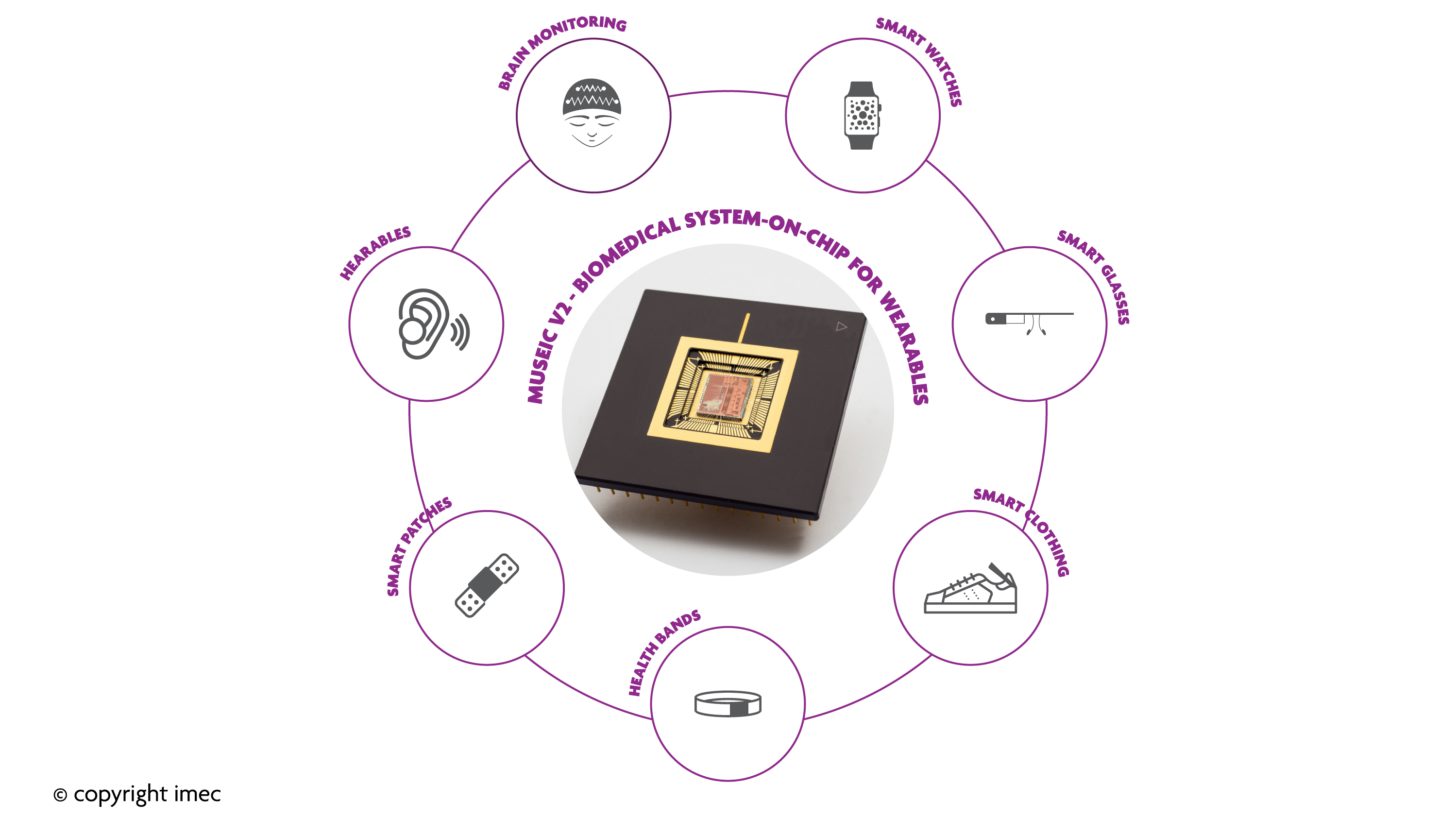LEUVEN, Belgium and EINDHOVEN, The Netherlands – Oct. 4, 2016 – World-leading research and development center for nano-electronics and digital technology, imec, and Holst Centre (established by imec and TNO), today announced a new sensor hub integrated as a system-on-chip (SoC) intended for a broad range of wearable health devices and applications. The SoC combines an unprecedented number of biomedical analog interfaces into a single chip, on-board digital signal processing, high fidelity operation, and multi-day monitoring capability with a single battery. Thanks to its small form factor, the SoC can be easily integrated in new innovative designs enabling maximum user comfort. This new SoC is an enabler towards the transformation of today’s mainly curative approach to healthcare to one that is preventative, predictive and personalized.
The biomedical analog interfaces include three ECG channels, photo-plethysmography (PPG), galvanic skin response (GSR), two multi-frequency bio-impedance (BIO-Z) channels to support new applications such as impedance-tomography, body fluid analysis and stroke volume measurements, and three reconfigurable channels.
While high performance multi-modal analog readouts have been demonstrated, they lack on-board signal processing capabilities, or are too large in size. Alternatively, existing reconfigurable readouts are smaller, but have limited performance. Imec’s and Holst Centre’s SoC moves beyond current solutions and combines advanced biomedical readouts, supported by an ARM Cortex M0+ controller and accelerators for sample-rate conversion, matrix processing, data compaction, and power management circuitry (PMIC). The PMIC operates from a battery source (2.9- 4.5V) and generates the required voltages for the readout IC. It supports dynamic voltage scaling optimized for, but not limited to, low power and high performance applications, and can be fully customized for specific healthcare applications.
“There is a clear need for accurate and reliable bio-sensing in wearables, and we are working on the building blocks to enable this,” stated Chris Van Hoof, program director wearable health at imec. “Our new SoC sensor hub underscores patient-centric capabilities and can be integrated in numerous wearable fitness and healthcare applications such as patch monitors, chest band heart rate monitors, respiration or hydration monitors and devices for blood-pressure calculation.”



















